So it’s the start of the summer opera season at Wormsley and we’re sitting there in evening dress in the middle of the Getty estate, looking at a beautifully detailed replica of a rundown English village hall. It’s superbly done: the canvas chairs and austerity-drab paintwork in Paul Curran’s new production of The Bartered Bride could surely have been found in any number of church halls in this corner of the Chilterns, at least in the 1950s when this production seems to be set. And then, having gone to painstaking lengths to relocate this definitive Slav national opera to rural England, Garsington flips our expectations straight back at us and has it sung in Czech.
Well, it wouldn’t be country-house opera without a few absurdities. The choice of language was, I believe, the preference of the conductor Jac van Steen, and a less dogmatic maestro you’ll never find. Smetana said that The Bartered Bride was ‘only a toy’, and it’d be a joyless soul who didn’t come away smiling from Curran’s sunny, vividly peopled world, with its gauche vicar, industrious district nurse and Brylcreemed rockers. The set for Act One provides both a public space for maypole dancing and matchmaking and a separate kitchen for more intimate confessions, generally delivered while buttering corned-beef sandwiches. Act Three’s circus stage, meanwhile, could have come straight out of the most traditional of Prague productions (the circus performers themselves sent the post-picnic audience wild).
My only major reservation, barring some splashy brass playing from the Philharmonia, was that all this activity left you unsure where to look, at least in the choral and dance scenes. It snapped brightly into focus whenever the young lovers Jenik (a bluff, hipster-bearded Brendan Gunnell) and Marenka (Natalya Romaniw) were together. Romaniw’s lustrous voice, in particular, was at maximum wattage; this bride was not going to be bartered without a fight. She brandished a breadknife, vamped it up with the stammering Vasek (Stuart Jackson, whose character would nowadays get a slot on The Undateables, and who came across here as wholly lovable) and stormed off to the kitchen to take out her frustration on a Victoria sponge.
The nearest she came to meeting her match was in Joshua Bloom’s marriage-broker Kecal — a beady-eyed operator in brown and white brogues whose glorious, all-engulfing bass tone was one of the evening’s many sonic treats. His final defeat felt very temporary, while Jenik’s reunion with his estranged father supplied just enough real emotion to convince you that it all mattered (The Bartered Bride isn’t an opera that admits very much darkness). Van Steen kept it skipping along; Lara Marie Müller as the circus girl Esmeralda was as nimble in her upper register as she was on her pins, and by the end — with lovers united, acrobats stacked four high and the audience yelling for more — it felt as though we’d just seen the ideal summer opera.
Michael Boyd’s new production of Don Giovanni opened the following night, and we learned from the souvenir silk scarves in the gift shop that it was to be — and you didn’t see this coming, did you? — a #MeToo Don Giovanni. In reality, it was nothing of the sort. Boyd’s Giovanni is a Young British Artist, first seen flinging buckets of paint at a white canvas. Leporello is his studio assistant and Elvira appears (at first, anyway) to be an artistic collaborator. It’s carried through with economy and wit (the final banquet is a KFC meal deal), but other than placing Elvira (Sky Ingram, plangent and touchingly sincere) front and centre, this was a fairly conventional interpretation. The final scene was cut altogether, ending the opera on Giovanni’s doom: a jarring reversion to Victorian practice, half-heartedly excused in a surtitle with a disingenuous reference to the opera’s première in ‘1788’ (trust me, you don’t want to go there).
At the outset, Giovanni had killed the Commendatore by spraying him with red paint. Amusing, but without seeing the Don commit at least one act of believably shocking violence the character loses much of his darkness — not a mortal sinner at the threshold of damnation, just a bit of a knob. Decide for yourself if that matters alongside the fact that the singing and characterisation was, for the most part, very enjoyable. Mireille Asselin (Zerlina) was bright and pointed, Trystan Llyr Griffiths floated his tenor sweet and high as Ottavio and Camila Titinger was dignified, if underused, as Anna. Douglas Boyd’s bouncy period-instrument orchestra rippled with colour, and the central relationship between Giovanni — a cocksure, steel-eyed Jonathan McGovern — and his put-upon wingman Leporello (sung with comparable style but discernibly more warmth by David Ireland) was a bromance for the ages, never more believable or entertaining than in their boisterous joint recitatives. That, at least, is usually a good sign.
Got something to add? Join the discussion and comment below.
Get 10 issues for just $10
Subscribe to The Spectator Australia today for the next 10 magazine issues, plus full online access, for just $10.
You might disagree with half of it, but you’ll enjoy reading all of it. Try your first month for free, then just $2 a week for the remainder of your first year.

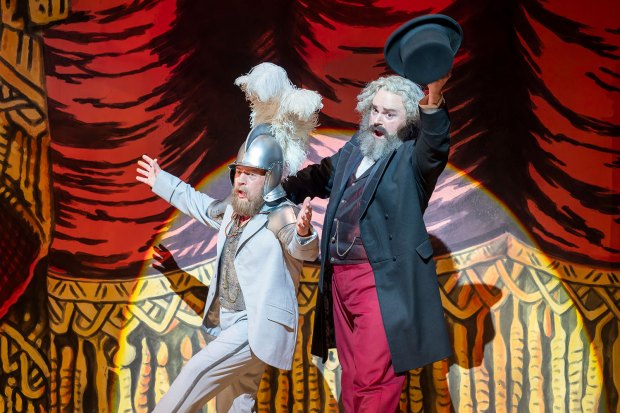
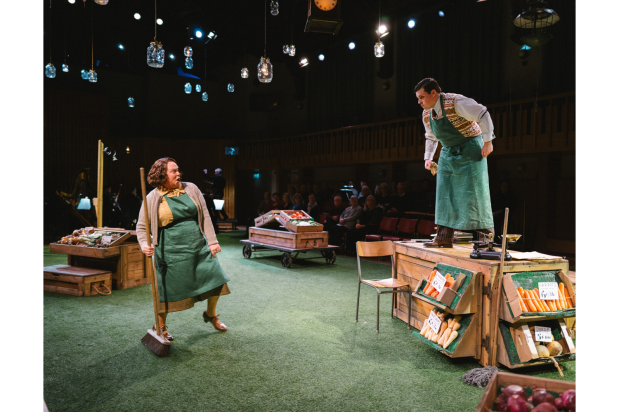

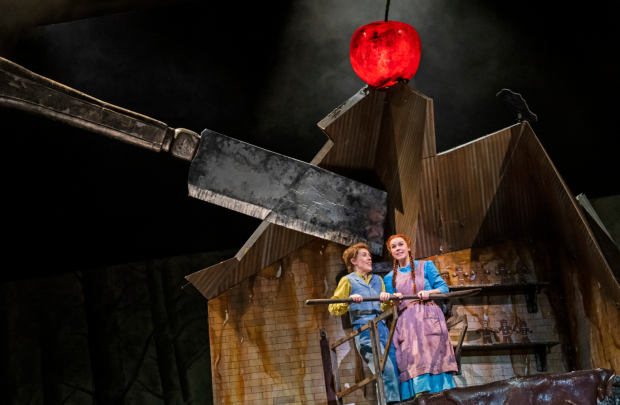
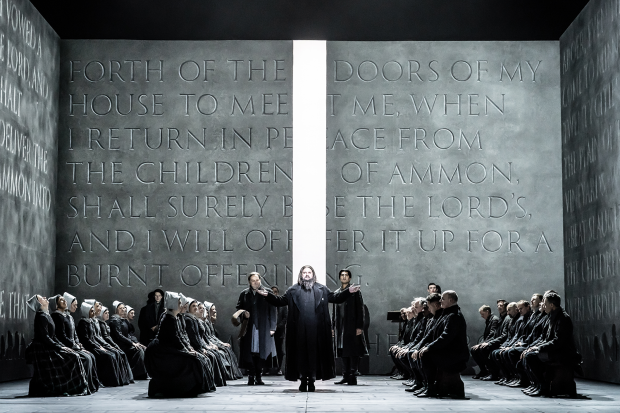
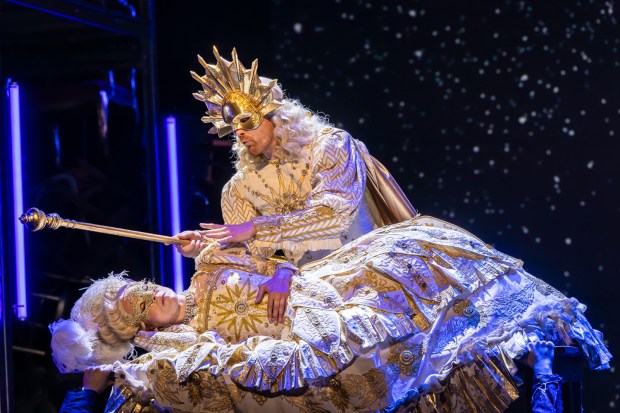






Comments
Don't miss out
Join the conversation with other Spectator Australia readers. Subscribe to leave a comment.
SUBSCRIBEAlready a subscriber? Log in